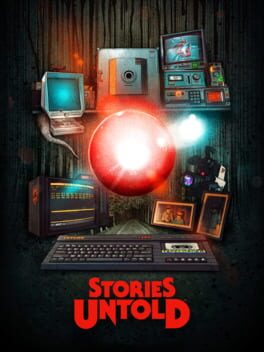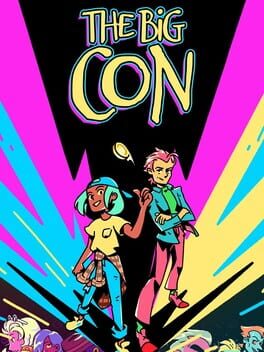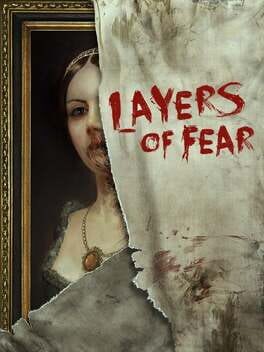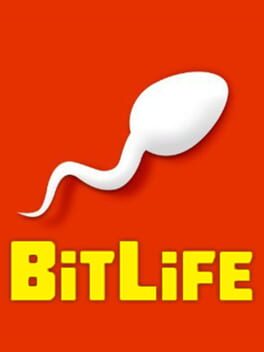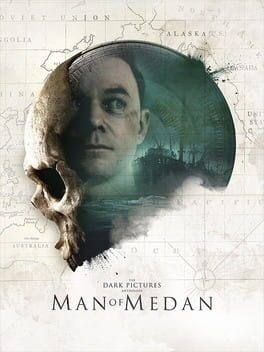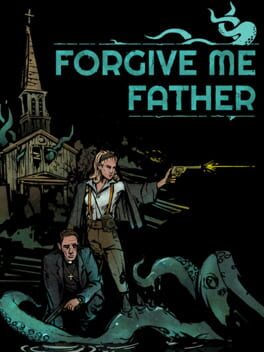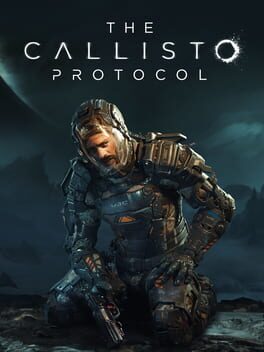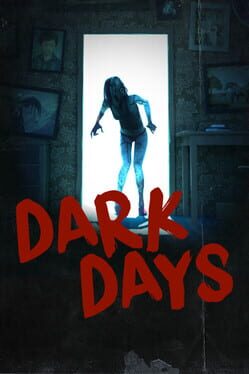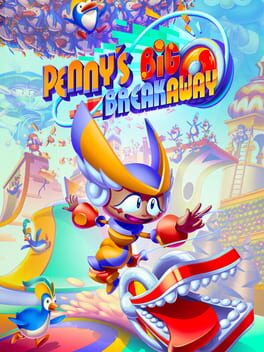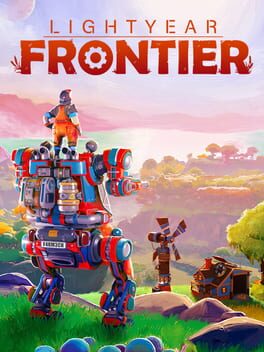TidB
130 Reviews liked by TidB
The Pony Factory
2024
The Pony Factory is short and not-so-sweet. You will slowly walk through a dilapidated factory killing three enemies repeatedly while a somewhat annoying song loops. In under twenty minutes, you too can steal the heart of The Pony Factory and kill some idiotic boss on your way out.
There isn't much to see, especially since the whole factory is extremely dark. You also literally retread your footsteps as you walk back the way you came, which for a twenty minute game feels extremely lazy. You get one uninteresting gun that gets a nearly useless upgrade. There are a few scattered writings to read that are somewhat funny, especially the one about the factory dumping tangible sin into the forest's water supply, which believe it or not is seemingly having consequences; but our “hero” Winston has been assured by Hell itself, who helps manage the factory, that these two things are not actually linked and he can stop worrying about it.
Its full price is $4 but honestly? I think that's asking for too much. This is a demo or experiment and it shouldn't be for sale. I do not recommend The Pony Factory.
There isn't much to see, especially since the whole factory is extremely dark. You also literally retread your footsteps as you walk back the way you came, which for a twenty minute game feels extremely lazy. You get one uninteresting gun that gets a nearly useless upgrade. There are a few scattered writings to read that are somewhat funny, especially the one about the factory dumping tangible sin into the forest's water supply, which believe it or not is seemingly having consequences; but our “hero” Winston has been assured by Hell itself, who helps manage the factory, that these two things are not actually linked and he can stop worrying about it.
Its full price is $4 but honestly? I think that's asking for too much. This is a demo or experiment and it shouldn't be for sale. I do not recommend The Pony Factory.
Stories Untold
2017
Moments of atmospheric brilliance ("you" getting closer and closer was clever and genuinely had me on the edge of my seat), but ultimately drives full-throttle down a frame-plot road that's been traversed by many other games, and more elegantly. It's not bad, just... overdone. In the IF genre alone you've got Photopia, Shade, and SPY INTRIGUE, off the top of my head.
Anyway, there are already reviews dissecting the ending, so I'll just talk about my personal bugbear: text parser pastiches need to stop using "USE". Actual parser games don't usually use "USE"; that's a menu-based adventure game thing. You cannot use ye flask. Stories Untold has the aesthetics of a Commodore 64 game, but the play logic is totally unlike any text parser game, in a way that I found outright distracting. I don't mean the verb selection menu--that's a smart way of levelling the playing field for people who haven't engaged with the genre--but things like AROUND being a noun which you can combine with GO or LOOK. You might say (perhaps the devs said) that real parser games are clunky, and nobody actually wants to play one, and the community of people who do play them in the 2020s is quite small. Sure. 100% fair. But if that's the reasoning... why make one? Why set this game in the 80s at all?
Anyway, there are already reviews dissecting the ending, so I'll just talk about my personal bugbear: text parser pastiches need to stop using "USE". Actual parser games don't usually use "USE"; that's a menu-based adventure game thing. You cannot use ye flask. Stories Untold has the aesthetics of a Commodore 64 game, but the play logic is totally unlike any text parser game, in a way that I found outright distracting. I don't mean the verb selection menu--that's a smart way of levelling the playing field for people who haven't engaged with the genre--but things like AROUND being a noun which you can combine with GO or LOOK. You might say (perhaps the devs said) that real parser games are clunky, and nobody actually wants to play one, and the community of people who do play them in the 2020s is quite small. Sure. 100% fair. But if that's the reasoning... why make one? Why set this game in the 80s at all?
In late February, I left a review on this game. I didn't really get it. I wouldn't say I fully get it now either, but I have been thinking a lot about this game ever since then. That review kind of sucked, but I guess it's a snapshot of that moment in time, the immediate guttural reaction to a challenge like this game is. I acknowledged in that review that as a cis guy, this was a perspective that I was likely not going to fully understand. I do feel as though this game is somehow unreviewable. Maybe this review can be seen as more of a review of my now-deleted review. In that I described this work as "ineffectual". That feels strange to say. I think it being on a site like Backloggd where it's presented as the same sort of product that any other video game is, inclines one to view it as a product. It's art, but is it really fair for it to be judged in the same way that Baldur's Gate 3 is? That just feels off-base to me. For me to suggest that it is "ineffectual" is almost like saying that somebody is venting in an "ineffectual" way. You could say that I guess, but read the room man! Maybe that's fair game because it's released as a Twine game on itch.io, but that still doesn't quite sit well with me. I didn't even really know what Twine games were when I first played this! It looks like this is its own category of game, which is pretty cool. I think my unfamiliarity might have hampered my perception in some way. This is an earnest piece of writing. That's important.
The major takeaway that I got from this game upon first playing it is this acknowledgment that there aren't that many critically acclaimed girly/feminine games. That IS true. As a cis guy I think that's an important point that I hadn't really thought about before. I find this point to be even more poignant after seeing the release of Princess Peach Showtime, recently. Especially with how a lot of people seem to look at a game like that. An industry where everybody feels there are ample games made for people like them and by people like them is a better industry than where we are today.
I love mechanics in video games. I love how much there is going on in a game like Metal Gear Solid 2, that kind of nitty-gritty where there's detail pouring out of every button press, every possibility, every corner of whatever world you're in; in my mind that is some of the best of what video games have to offer as art. I think when first reading this, the frank style of writing made me feel as though I was somehow wrong for thinking that way, like I was being reprimanded as this silly guy gamer. But that's really a reactionary way of looking at it, I think. I don't think that's its purpose. In retrospect I think I was really thinking about it all wrong. I think my older review, and I suppose the divided reviews on this game on this site are a showcase in how a site like Backloggd can and does play a part in the way in which we perceive art. I honestly wonder, if I had found out about this game through a recommendation from a friend, or some other kind of website, would I have reacted to it the way that I had? In a place like this, a piece of writing can end up commodified, as just another product to review and rate, and because it has strong writing it must have some sort of finger-wagging point to say to any and all gamers that come across it. Though I often criticize reactionaries and their culture wars against art, this was a case where I found some other ways that somebody can get sucked into that. Even me. That's humbling, and it has profound meaning to how I engage with art going forward. I realize that it's something that was present with how I engaged with other perspectives in the past, too. I never really understood the whole "liminal space" thing that was popular online, and I don't think I engaged with those feelings in an empathetic way. This was meaningful, important reading for me to have had.
This writing is another perspective. The best thing you can hope for with something like this is that it'll make you think, or at least feel. If it's lucky, it may even change some minds, open up mental doors. Evidently, it's successful. Based on Princess' perspective shown here, I'd really like to check out her games.
The major takeaway that I got from this game upon first playing it is this acknowledgment that there aren't that many critically acclaimed girly/feminine games. That IS true. As a cis guy I think that's an important point that I hadn't really thought about before. I find this point to be even more poignant after seeing the release of Princess Peach Showtime, recently. Especially with how a lot of people seem to look at a game like that. An industry where everybody feels there are ample games made for people like them and by people like them is a better industry than where we are today.
I love mechanics in video games. I love how much there is going on in a game like Metal Gear Solid 2, that kind of nitty-gritty where there's detail pouring out of every button press, every possibility, every corner of whatever world you're in; in my mind that is some of the best of what video games have to offer as art. I think when first reading this, the frank style of writing made me feel as though I was somehow wrong for thinking that way, like I was being reprimanded as this silly guy gamer. But that's really a reactionary way of looking at it, I think. I don't think that's its purpose. In retrospect I think I was really thinking about it all wrong. I think my older review, and I suppose the divided reviews on this game on this site are a showcase in how a site like Backloggd can and does play a part in the way in which we perceive art. I honestly wonder, if I had found out about this game through a recommendation from a friend, or some other kind of website, would I have reacted to it the way that I had? In a place like this, a piece of writing can end up commodified, as just another product to review and rate, and because it has strong writing it must have some sort of finger-wagging point to say to any and all gamers that come across it. Though I often criticize reactionaries and their culture wars against art, this was a case where I found some other ways that somebody can get sucked into that. Even me. That's humbling, and it has profound meaning to how I engage with art going forward. I realize that it's something that was present with how I engaged with other perspectives in the past, too. I never really understood the whole "liminal space" thing that was popular online, and I don't think I engaged with those feelings in an empathetic way. This was meaningful, important reading for me to have had.
This writing is another perspective. The best thing you can hope for with something like this is that it'll make you think, or at least feel. If it's lucky, it may even change some minds, open up mental doors. Evidently, it's successful. Based on Princess' perspective shown here, I'd really like to check out her games.
Infra
2016
The Big Con
2021
Pretty enjoyable experience. Story was a high point for me as it felt like watching a straight to DVD coming of age movie, only with a few more gay people and swearing. Cheesy and a bit cliche, but I love that the game doesn't take itself too seriously. Gameplay got repetitive for me about halfway through which made me want to rush through the rest of the story but i toughed it out so I could meet more of the characters
Layers of Fear
2016
This review contains spoilers
It's bad. I'll give one example. There's a hallway where you can see a painting of a dog at the end of it. As you walk forward, you can hear a dog barking, and when you get to the end of the hallway, the painting SHIFTS into a painting of a HELLDOG in HELL and the dog stops barking. This is the style of "horror" that Bloober Team sticks with from start to finish, and it's just as lacking as it sounds. The story is legible and fine to piece together, but wholly two-dimensional. Bad dad is bad, alcoholism, total death of family. Not breaking any new ground there, buddy.
It does look pretty, though!
It does look pretty, though!
BitLife
2018
my ratings are purely based on how much i like the game, not the perceived value of it, because i think seeing games as just products is harmful to the medium. however i think it's important to note that bitlife is a very greedy game. it started with bitizenship and now there's a fuckton of expansions that don't need to be paid. that being said, the game is pretty fun, especially for a mobile title. i like the legacy mechanic a lot, it's just really fun to do different types of lives.
What an awful way to follow up Until Dawn.
Aside from some questionable voice performances, the game actually starts off okay and manages to build a somewhat creepy atmosphere. However the gameplay quickly devolves into slowly walking down identical looking hallways with the occasional jumpscare or qte. All of that builds up to an embarrassingly underwhelming climax showing just how poorly conceived the story was. Not sure how much of that was due to the decisions I made but I certainly won’t play it again to find out.
Aside from some questionable voice performances, the game actually starts off okay and manages to build a somewhat creepy atmosphere. However the gameplay quickly devolves into slowly walking down identical looking hallways with the occasional jumpscare or qte. All of that builds up to an embarrassingly underwhelming climax showing just how poorly conceived the story was. Not sure how much of that was due to the decisions I made but I certainly won’t play it again to find out.
Forgive Me Father
2021
Forgive Me Father steals the shows with its Lovecraftian style and unique art direction that oozes investigation. The creepy atmosphere and enemy design coupled with the unique weapon upgrades and animations ask for you to spend some quality time playing through what Forgive Me Father has to offer. Regrettably, due to a handful of issues and game design choices this is a hard one to recommend from a gameplay perspective.
As mentioned prior the game itself is gorgeous and you follow the story of 1 of 2 playable characters through a noire quest to unfold the mysteries that lie before you. The character selection itself does little to differentiate the story apart from the initial motivation and the one liner’s your character spits out while you slay hordes of monster. The experience is separated into 5 distinct chapters that start relatively based in reality before going all out gangbusters with the cosmic horror. As you progress you unlock additional abilities and get limited upgrades to specific weapons or perks that will vastly change how your weapons function and look. The arsenal itself is quite varied and there is never really a point that you will not be unlocking new stuff which is greatly appreciated.
However, it is important to mention that Forgive Me Father comes with a myriad of issues that hold it back from being truly fantastic. Firstly, the games performance plummets in the final 2 chapters stuttering whenever there is combat making it almost impossible to play even on the lowest graphical settings. Secondly, the story set up and execution is great but gets absolutely ruined by a lackluster out of nowhere ending that flops harder than a fat kid at a pool party. My last main issue is the difficulty and level design. I’m not sure if it was forgotten or if they were under the pump to release but the last 2 chapters although gorgeous suck to play in. There are no save points in most of the final levels and for some unknown reason multiple platforming sections that mean if you don’t make a jump near the end of a level you will need to restart the entire thing again. To be honest there are many other issues I could list but these felt like some of the most egregious to me.
To be brief I personally was quite excited to play Father Forgive Me but was glad to be finished with it. If the art style intrigues you and you enjoy a relatively fun boomer shooter I would definitely recommend but take that with a grain of salt.
As mentioned prior the game itself is gorgeous and you follow the story of 1 of 2 playable characters through a noire quest to unfold the mysteries that lie before you. The character selection itself does little to differentiate the story apart from the initial motivation and the one liner’s your character spits out while you slay hordes of monster. The experience is separated into 5 distinct chapters that start relatively based in reality before going all out gangbusters with the cosmic horror. As you progress you unlock additional abilities and get limited upgrades to specific weapons or perks that will vastly change how your weapons function and look. The arsenal itself is quite varied and there is never really a point that you will not be unlocking new stuff which is greatly appreciated.
However, it is important to mention that Forgive Me Father comes with a myriad of issues that hold it back from being truly fantastic. Firstly, the games performance plummets in the final 2 chapters stuttering whenever there is combat making it almost impossible to play even on the lowest graphical settings. Secondly, the story set up and execution is great but gets absolutely ruined by a lackluster out of nowhere ending that flops harder than a fat kid at a pool party. My last main issue is the difficulty and level design. I’m not sure if it was forgotten or if they were under the pump to release but the last 2 chapters although gorgeous suck to play in. There are no save points in most of the final levels and for some unknown reason multiple platforming sections that mean if you don’t make a jump near the end of a level you will need to restart the entire thing again. To be honest there are many other issues I could list but these felt like some of the most egregious to me.
To be brief I personally was quite excited to play Father Forgive Me but was glad to be finished with it. If the art style intrigues you and you enjoy a relatively fun boomer shooter I would definitely recommend but take that with a grain of salt.
The Callisto Protocol: A video game designed to teach people the concept of “hurry up and wait”. It's very flashy with excellent textures and lighting effects, but it's a hollow and boring game experience barely worth it even while heavily discounted.
You're Jacob, a cargo transporter and maybe smuggler. You and your pal are hijacked by terrorists, so you give them a fat middle finger and crash your ship back on Callisto, a prison planet. Only you and Dani, the hijacking ringleader, survive and the two of you are immediately arrested and thrown into Black Iron Prison. Jacob wants out, but warden Duncan Cole may be up to some scientific buffoonery.
I feel like this game is in a rush to get wrapped up before I ever got a chance to get interested. You're rarely given any sense of scale for the prison and you see zero prison life; Jacob gets arrested and when he wakes up next, he's escaping. He was in prison for 30 minutes, apparently, talk about timing.
The scale of where the plot goes is just embarrassing. The Illuminati shows up when they absolutely did not need to and visually they look like they got off the set of “Squid Game”.
A lot of The Callisto Protocol is made up of time wasters like crawling through vents, shimmying through crevices, or climbing ladders. In areas where Jacob can walk, often something like grime or entrails will impede him so he cannot run. This game is comically paced to a point where I cannot help but suspect these are no longer “hidden” loading screens but rather padding to make the short game feel longer and more deserving of your money. In other games such as God of War (2018), when Kratos and Atreus are climbing a wall (time waster), they at least have a conversation to help with worldbuilding and deepen the relationship. Striking Distance Studios just puts Jacob in vent after vent with nobody to talk to. Seriously, why?
When you're not wasting time in vents, you're fighting very easy enemies with a repetitive melee system or guns that can hit weak points and kill them in one shot. The "exciting" stuff is pretty lame, too.
There are plenty of problems with this game, stuff like motion blur making me want to vomit, melee combat following a very boring pattern, needing to tediously stomp every corpse to get necessary supplies, environmental effects (like lights turning off or ceiling panels falling) replay when you leave a room and return, there's no map system, enemies can grab you and easily get a free hit in, the ending is locked behind paid DLC, you're rarely rewarded for going off the beaten path, and probably more I'm missing.
Good things? As previously mentioned, the graphics are insane. The game looks great, but since it looks SO good and plays SO bad, this just seems like poor time management or focus and a waste of manpower. The DLC mission does some hallucination stuff well. The stealth sections with Jacob killing blind enemies worked okay, though maybe it was too easy (the whole game was). They just lifted some stuff right out of Dead Space and what worked well there works kinda well, here.
It's only $20 for the “full” game right now (again, the ending is in paid DLC... outrageous) and I still don't think it's worth that. There won't be a Callisto Protocol 2 and that's a very good thing. I've read people saying this game is some kind of hidden gem that wasn't given a fair shot and that's a load of horse shit, it's just bad. I feel bad for Josh Duhamel, a sentence I never expected to say.
I do not recommend The Callisto Protocol. If it ever goes to $10 for the whole thing and you far-too-passionately LOVE Dead Space, sure. Otherwise, this can and should be avoided.
You're Jacob, a cargo transporter and maybe smuggler. You and your pal are hijacked by terrorists, so you give them a fat middle finger and crash your ship back on Callisto, a prison planet. Only you and Dani, the hijacking ringleader, survive and the two of you are immediately arrested and thrown into Black Iron Prison. Jacob wants out, but warden Duncan Cole may be up to some scientific buffoonery.
I feel like this game is in a rush to get wrapped up before I ever got a chance to get interested. You're rarely given any sense of scale for the prison and you see zero prison life; Jacob gets arrested and when he wakes up next, he's escaping. He was in prison for 30 minutes, apparently, talk about timing.
The scale of where the plot goes is just embarrassing. The Illuminati shows up when they absolutely did not need to and visually they look like they got off the set of “Squid Game”.
A lot of The Callisto Protocol is made up of time wasters like crawling through vents, shimmying through crevices, or climbing ladders. In areas where Jacob can walk, often something like grime or entrails will impede him so he cannot run. This game is comically paced to a point where I cannot help but suspect these are no longer “hidden” loading screens but rather padding to make the short game feel longer and more deserving of your money. In other games such as God of War (2018), when Kratos and Atreus are climbing a wall (time waster), they at least have a conversation to help with worldbuilding and deepen the relationship. Striking Distance Studios just puts Jacob in vent after vent with nobody to talk to. Seriously, why?
When you're not wasting time in vents, you're fighting very easy enemies with a repetitive melee system or guns that can hit weak points and kill them in one shot. The "exciting" stuff is pretty lame, too.
There are plenty of problems with this game, stuff like motion blur making me want to vomit, melee combat following a very boring pattern, needing to tediously stomp every corpse to get necessary supplies, environmental effects (like lights turning off or ceiling panels falling) replay when you leave a room and return, there's no map system, enemies can grab you and easily get a free hit in, the ending is locked behind paid DLC, you're rarely rewarded for going off the beaten path, and probably more I'm missing.
Good things? As previously mentioned, the graphics are insane. The game looks great, but since it looks SO good and plays SO bad, this just seems like poor time management or focus and a waste of manpower. The DLC mission does some hallucination stuff well. The stealth sections with Jacob killing blind enemies worked okay, though maybe it was too easy (the whole game was). They just lifted some stuff right out of Dead Space and what worked well there works kinda well, here.
It's only $20 for the “full” game right now (again, the ending is in paid DLC... outrageous) and I still don't think it's worth that. There won't be a Callisto Protocol 2 and that's a very good thing. I've read people saying this game is some kind of hidden gem that wasn't given a fair shot and that's a load of horse shit, it's just bad. I feel bad for Josh Duhamel, a sentence I never expected to say.
I do not recommend The Callisto Protocol. If it ever goes to $10 for the whole thing and you far-too-passionately LOVE Dead Space, sure. Otherwise, this can and should be avoided.
An early footnote in The Centennial Case outlines possible tricks in detective fiction, including the "narrative trick"--misleading the reader via the narrative delivery of prose writing, e.g. unreliable narrators--but notes that such tricks are considered "impossible in films and TV". Naturally, anyone in the game's target audience (the type of mystery fan who reads the sleuth spotlights at the back of Detective Conan volumes) may wonder if this FMV game will try its hand at inventing one. May build a few logic hexagons, so to speak, about what could be done with this format. I did, and the story still threw me just far enough off the scent to be surprised. They accomplished their goal in a pretty clever way, so kudos to them.
Mind, we are talking about a type of trick that hasn't been done in films and TV. Exploiting the medium for narrational meta-tricks is nothing new to video games and VNs. You can find effective uses of these twists in works from Umineko to Undertale to Kotaro Uchikoshi's entire oeuvre. And that's my sticking point: Centennial Case doesn't seem all that interested in being a video game. The interactive logic board segments are the weakest parts. They're similar to Sherlock Holmes: Crimes and Punishments' deduction system but more mechanically obtuse (albeit more aesthetically pleasing). My best interpretation of what was going on here is a simulation of the kind of wild theorizing a reader performs while engaging with a mystery novel, but I didn't have a consistent sense of what these logic chains were supposed to represent. They certainly aren't deductions. "Clues" can be evidence OR possible answers. The resulting hypotheses also often fell prey to sloppy wording, or possibly muddy translation (e.g. whatever distinction they were driving at with "the culprit burned the evidence" vs. "the culprit set a fire to burn evidence"). Basically, while I didn't dislike the logic system nearly as much as some people, I didn't feel like it added much. I would've liked the story equally if it had been a TV series.
That all sounds kind of negative, so I want to say, I did like Centennial Case. A lot. It's full of references to the history of detective fiction, situated in historical context, and that stuff is like catnip to me. While most of the cases were nothing to write home about, they were solid, and I had plenty of fun with them. The epilogue was great, and I loved Josui. Add a new Character Of All Time to the list, lads.
Mind, we are talking about a type of trick that hasn't been done in films and TV. Exploiting the medium for narrational meta-tricks is nothing new to video games and VNs. You can find effective uses of these twists in works from Umineko to Undertale to Kotaro Uchikoshi's entire oeuvre. And that's my sticking point: Centennial Case doesn't seem all that interested in being a video game. The interactive logic board segments are the weakest parts. They're similar to Sherlock Holmes: Crimes and Punishments' deduction system but more mechanically obtuse (albeit more aesthetically pleasing). My best interpretation of what was going on here is a simulation of the kind of wild theorizing a reader performs while engaging with a mystery novel, but I didn't have a consistent sense of what these logic chains were supposed to represent. They certainly aren't deductions. "Clues" can be evidence OR possible answers. The resulting hypotheses also often fell prey to sloppy wording, or possibly muddy translation (e.g. whatever distinction they were driving at with "the culprit burned the evidence" vs. "the culprit set a fire to burn evidence"). Basically, while I didn't dislike the logic system nearly as much as some people, I didn't feel like it added much. I would've liked the story equally if it had been a TV series.
That all sounds kind of negative, so I want to say, I did like Centennial Case. A lot. It's full of references to the history of detective fiction, situated in historical context, and that stuff is like catnip to me. While most of the cases were nothing to write home about, they were solid, and I had plenty of fun with them. The epilogue was great, and I loved Josui. Add a new Character Of All Time to the list, lads.
Exoptable Money
2014
Exoptable Money: Let's not pretend either of us knew what “exoptable” meant until we Googled it today. It doesn't even look like a real word.
Another “game” by Robert Brock, the creator of Presentable Liberty, and in Exoptable Money you do even less than you did there. There is no information nor instructions, simply a velvet-covered box with a red switch in front of you and a rope on the side. Flip the switch and the box comes alive with lights, spraying money up into the air and into your pockets. Pull that rope and you see the upgrade store, offering delights such as more bills per second or adding gems to the reward pool, fueling your finances. Each upgrade runs you the chance of seeing a letter from a mysterious Madame Sinclaire or Doctor Money while a short and ominous track loops indefinitely. Thank god it can be muted.
Things get weird. Like “blood is now flying out of the box”-weird. Eventually the box is spewing so much shit you'll struggle to see your mouse, which is obnoxious.
Exoptable Money is an idler, so as with Presentable Liberty there's an obvious element of “wasted time” here. By design, you do nothing while the game makes you wait until you can buy the next upgrade to speed up the process of waiting -- but while the game's speed is increased, so is the price for the next upgrade, re-lengthening the waiting and maybe making things worse. I've played several “normal” idlers and I think they do something dangerous to the human mind and I'd bet Robert Brock felt that way, too.
There's some good humor here. You only see letters from Madame Sinclaire after buying an upgrade, so it may be a while between them. She'll eventually just send you a totally blank letter in an envelope and you won't get an explanation until the next upgrade where she simply apologizes for the error. Basically two pointless letters. You can also pay 8000 bucks, a pretty steep price, for a measly three additional backgrounds to see. You likely won't even view these because you're going to alt-tab out of this game. Even worse is a tin can you can buy for $50,000 and it does nothing but make a “clang” when you click it.
Like Presentable Liberty, this is clearly a piece of media to make you feel something more so than directly entertain you, if that makes sense. I think it has an interesting mindset behind it and I'm happy I gave it a shot, but I don't recommend Exoptable Money simply because it's an idler that's pretty boring, takes too long to beat, and there isn't even a 3D room for you to interact with. While arguably an idler as well, at least there's a variety of mini-games in Presentable Liberty.
Another “game” by Robert Brock, the creator of Presentable Liberty, and in Exoptable Money you do even less than you did there. There is no information nor instructions, simply a velvet-covered box with a red switch in front of you and a rope on the side. Flip the switch and the box comes alive with lights, spraying money up into the air and into your pockets. Pull that rope and you see the upgrade store, offering delights such as more bills per second or adding gems to the reward pool, fueling your finances. Each upgrade runs you the chance of seeing a letter from a mysterious Madame Sinclaire or Doctor Money while a short and ominous track loops indefinitely. Thank god it can be muted.
Things get weird. Like “blood is now flying out of the box”-weird. Eventually the box is spewing so much shit you'll struggle to see your mouse, which is obnoxious.
Exoptable Money is an idler, so as with Presentable Liberty there's an obvious element of “wasted time” here. By design, you do nothing while the game makes you wait until you can buy the next upgrade to speed up the process of waiting -- but while the game's speed is increased, so is the price for the next upgrade, re-lengthening the waiting and maybe making things worse. I've played several “normal” idlers and I think they do something dangerous to the human mind and I'd bet Robert Brock felt that way, too.
There's some good humor here. You only see letters from Madame Sinclaire after buying an upgrade, so it may be a while between them. She'll eventually just send you a totally blank letter in an envelope and you won't get an explanation until the next upgrade where she simply apologizes for the error. Basically two pointless letters. You can also pay 8000 bucks, a pretty steep price, for a measly three additional backgrounds to see. You likely won't even view these because you're going to alt-tab out of this game. Even worse is a tin can you can buy for $50,000 and it does nothing but make a “clang” when you click it.
Like Presentable Liberty, this is clearly a piece of media to make you feel something more so than directly entertain you, if that makes sense. I think it has an interesting mindset behind it and I'm happy I gave it a shot, but I don't recommend Exoptable Money simply because it's an idler that's pretty boring, takes too long to beat, and there isn't even a 3D room for you to interact with. While arguably an idler as well, at least there's a variety of mini-games in Presentable Liberty.
Dark Days
2024
Dark Days: This is a really lousy experience. Essentially an “escape the room” game with a monster in some of the areas, Dark Days fails to deliver both interesting puzzles and tense scares, and its narrative suffers the classic pitfalls of indie-tier junk.
It opens with a jumpscare, not the most clever but certainly an effective one, as a monster in your front seat lunges at you while you're driving. Jade, your rambling character, pulls over at a motel and shenanigans begin, including introducing a monster who attacks when you “stare” at her. It's a fine concept, but this gal is WAY too sensitive because just having her on screen for an instant is enough to prompt her wrath. It's not very hard to manipulate, though; when you hear her breathing, you can just clam up and wait her out if you want. She'll go away and you can get back to looking for fuses or keys or whatever. You can also just look at walls and strafe when you know she's behind you. By her second encounter she was already no longer frightening to me.
That's the whole game: find the item(s) to escape the room while the monster waits for a reason to kill you, then repeat that a dozen-or-so times. Jade will be speaking to herself the entire game (and cannot be fast forwarded), awkwardly saying nothing to the men speaking to her at various points, and you'll learn a story about some cursed place in the desert and how Jade's wife is sickly. Is it interesting? Absolutely not, my brain was completely off for this game, and my subconscious/muscle memory still managed to get through this mess in under two hours. I love when the bad games are brief.
I won't spoil it, though I sort of will, when I say it ends in exactly the manner you'd think an indie game would. Apparently this game supports VR and I could see the horror working out better there, but even then it's so brief with zero replay value, what's the point? It's cheap, but it's not worth it at all.
I do not recommend Dark Days. It's a waste of time and hard drive space.
It opens with a jumpscare, not the most clever but certainly an effective one, as a monster in your front seat lunges at you while you're driving. Jade, your rambling character, pulls over at a motel and shenanigans begin, including introducing a monster who attacks when you “stare” at her. It's a fine concept, but this gal is WAY too sensitive because just having her on screen for an instant is enough to prompt her wrath. It's not very hard to manipulate, though; when you hear her breathing, you can just clam up and wait her out if you want. She'll go away and you can get back to looking for fuses or keys or whatever. You can also just look at walls and strafe when you know she's behind you. By her second encounter she was already no longer frightening to me.
That's the whole game: find the item(s) to escape the room while the monster waits for a reason to kill you, then repeat that a dozen-or-so times. Jade will be speaking to herself the entire game (and cannot be fast forwarded), awkwardly saying nothing to the men speaking to her at various points, and you'll learn a story about some cursed place in the desert and how Jade's wife is sickly. Is it interesting? Absolutely not, my brain was completely off for this game, and my subconscious/muscle memory still managed to get through this mess in under two hours. I love when the bad games are brief.
I won't spoil it, though I sort of will, when I say it ends in exactly the manner you'd think an indie game would. Apparently this game supports VR and I could see the horror working out better there, but even then it's so brief with zero replay value, what's the point? It's cheap, but it's not worth it at all.
I do not recommend Dark Days. It's a waste of time and hard drive space.
Genuinely the best feeling 3D platformer I've played innnnnn gotta be at least 5 years. It's, just, pouring out the seams with charm and earnest love, to the point where the polish feels homemade with its partly-crusty lining. Sometimes for woe though, of course, like when the geometry can ~occasionally~ disagree with your particular momentum and existence. Otherwise it feels as clean as it should be!
It has the makings of doing the Super Mario Odyssey flowchart of hat-tricking, but with detours and digressions from that linear track, encouraged both for score and conserving momentum. Sonic but not-quite-Sonic sprinklings on top, and that all flows together phenomenally. What's altogether more stunning though is it's the only work of its ilk that bothers to really have "level design." There's real guidance through its stages in a way that lets you go absolutely hogwild with its toolkit without ever being 'too open' or 'too constrained.' You can reasonably skip as much as you'd like to by mastering the speed of yo-yo tricks well enough, but there's always some things you Need to do. It's so super encouraging of going for the One-Combo 100% run through its stages, to the point where I actually went and did a few. I can't say a game like this has done that to me! It helps that the music is so bouncy and blissful, and stages never outstay their welcome to where the prospect of "you need to do this entire stage again" is a "absolutely hun let's do even better this time".
My only ~real~ issue is that the swinging and twirling, sadly, lacks enough bite, at least for me. I don't think there's a single stage or moment where the game challenged me, and this is AFTER doing every bonus stage. Sure I can do the one-combos and those can be difficult but with all the skips it's only really as hard as I let it be? Even though it's not uncharacteristic for such a clearly soft platformer, I find myself so unsatisfied with the lengths the game really went to, especially when the final boss was more of a wet fart than a real demonstration of the game's skills, or like, your performance as an artist!!! Give it an encore! A real spicy star road!
It has the makings of doing the Super Mario Odyssey flowchart of hat-tricking, but with detours and digressions from that linear track, encouraged both for score and conserving momentum. Sonic but not-quite-Sonic sprinklings on top, and that all flows together phenomenally. What's altogether more stunning though is it's the only work of its ilk that bothers to really have "level design." There's real guidance through its stages in a way that lets you go absolutely hogwild with its toolkit without ever being 'too open' or 'too constrained.' You can reasonably skip as much as you'd like to by mastering the speed of yo-yo tricks well enough, but there's always some things you Need to do. It's so super encouraging of going for the One-Combo 100% run through its stages, to the point where I actually went and did a few. I can't say a game like this has done that to me! It helps that the music is so bouncy and blissful, and stages never outstay their welcome to where the prospect of "you need to do this entire stage again" is a "absolutely hun let's do even better this time".
My only ~real~ issue is that the swinging and twirling, sadly, lacks enough bite, at least for me. I don't think there's a single stage or moment where the game challenged me, and this is AFTER doing every bonus stage. Sure I can do the one-combos and those can be difficult but with all the skips it's only really as hard as I let it be? Even though it's not uncharacteristic for such a clearly soft platformer, I find myself so unsatisfied with the lengths the game really went to, especially when the final boss was more of a wet fart than a real demonstration of the game's skills, or like, your performance as an artist!!! Give it an encore! A real spicy star road!
Lightyear Frontier
2024
A neat idea with average execution. Lightyear Frontier has some good bones but isn't breaking or challenging the mold in any way. Id lump it in with the kind of generic farming / survival game genre. Turning off the Dialog is strongly recommend for this one as your companion will not stfu and gets a little to excited when you explore the SC-FI aspects of the story.

